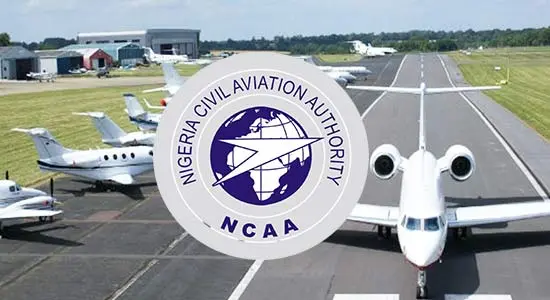Najomo Inaugurates Safety Committee To Strengthen Nigeria's Aviation Safety Management

Director-General Nigeria Civil Aviation Authority (NCAA), Capt. Chris Najomo, on Wednesday inaugurated the National Operational Safety Committee (NOSC), a first-of-its-kind Committee on the State Safety Programme (SSP), to strengthen Nigeria's aviation safety management standards and operational efficiency.
Speaking at the inauguration ceremony, in Abuja, Najomo charged members of the committee to take their responsibilities as a national service and confront the task with the utmost seriousness deserves stressing that task “is very critical to the safety of the flying public”.
The DGCA, who was represented at the inauguration ceremony by Director of Air Worthiness Standards Engr. Victor Goyea, noted that the NCAA, as the place holder of the SSP in Nigeria, together with the Nigerian Safety Investigation Bureau (NSIB), has developed a tiered approach to achieving the safety management responsibility for Nigeria.
He said the establishment of the committee “is further in line with the policy of the Federal Government of Nigeria for the aviation industry through the five (5) point agenda, primary of which is strict compliance with safety regulations and working to improve Nigeria’s safety rating by ICAO”.
“The NOSC is the second tier at the operational level that serves as an advisory body to the NESC, whose major objective is to bring together stakeholders in the aviation industry and the State Safety Programme Implementation Team (SSPIT) to interface, discuss, and monitor the resolution of safety deficiencies identified during the course of routine operations,” Najomo further stated.
He noted that the “Authority strongly believes that results are achieved when entities work collaboratively, rather than in silos, hence the need to inaugurate this very important committee”.
Terms of Reference of the NOSC are as follows: assist in the establishment and continuous review of the state operational safety risk profile; assist in developing corrective action plans to mitigate the associated operational safety risk profile; assist in coordinating the management of change process to identify new hazards and emerging safety risks within the state and assist in assessing and monitoring the safety performance within the state.
Others are to assist in the coordination of safety promotion activities; assist in contributing to the amendment of the national State Safety Programme (SSP) and the National Aviation Safety Plan (NASP) documents; and, carry out any other tasks that may be assigned by the NESC, consequential to the improvement of the state's operational safety risks profile of civil aviation activities in Nigeria.
In a welcome address, Director of Special Duties (DSD), Dr. Horatius Egua, outlined the committee’s structure and strategy, explaining that it will operate through quarterly meetings and working groups aligned with the SSP to proactively tackle emerging risks.
“I am glad that today, the NOSC has crystalized into a committee that will support the National Executive Safety Committee (NESC) in its advisory roles. With the NOSC coming onboard, I am sure that our desire to fully implement the SSP is in sight,” he said.
Egua urged members of the committee to see their selection as a national assignment and urged everyone to “work assiduously to ensure that we join the league of nations that have fully implemented the SSP”.
Members of the NOSC are Dr. Egua as chairman; DSD NSIB Engr. Frank Odita as alternate chairman; general managers of the Flight Standards Group (FSG), safety managers of operators/service providers, SSP implementation team members; and national coordinator, SSP as the head of secretariat.
The committee, which is expected to meet quarterly, through designated working groups will be led by appointed chair and vice chair and the mode of meeting will be both physical and virtual to ensure seamless collaboration across all aviation stakeholders with a view to proactively tackle emerging risks.
The event drew representatives from major aviation parastatals and stakeholders, including, the Federal Airports Authority of Nigeria (FAAN), the Nigerian Airspace Management Agency (NAMA) as well as airline representatives.

